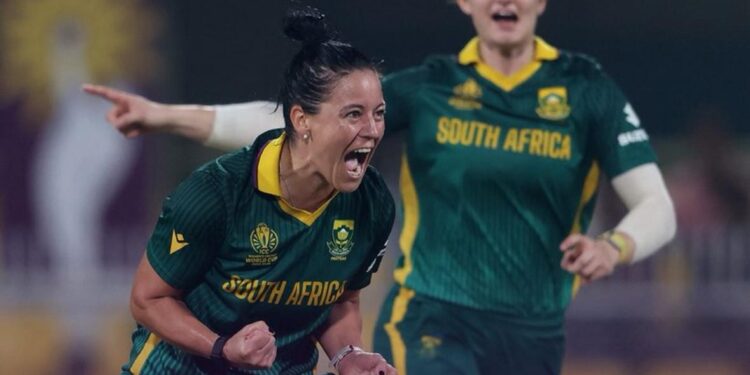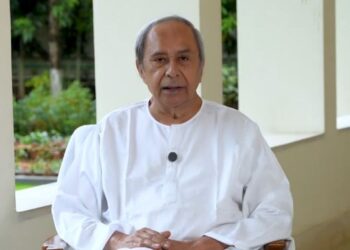In a display of sheer dominance that shattered decades of heartbreak, South Africa powered into their maiden ICC Women’s ODI World Cup final with a resounding 125-run thrashing of defending champions England in the semi-final at the Dubai International Cricket Stadium on Wednesday.
Chasing a mammoth 320, England crumbled under the relentless Proteas attack, folding for just 194 in 42.3 overs. The victory ends a painful legacy of three previous semi-final heartbreaks for South Africa—at the hands of Australia in 2005 and 2022, and England in 2017—propelling them into Sunday’s showpiece clash against the winner of the Australia-India semi-final.
Captain Laura Wolvaardt was the architect of South Africa’s imposing 319 for seven, crafting a masterful unbeaten 169 off 147 balls—her highest ODI score and the highest by a South African woman in World Cup history. The 26-year-old’s innings, laced with 17 fours and four sixes, was a symphony of elegance and power, anchoring the innings after early jitters saw openers Tazmin Brits and Karabo Meso depart cheaply.
Wolvaardt found stout support from Sune Luus (46) and Chloe Tryon (38 not out), who accelerated in a brisk 70-run stand for the sixth wicket. The duo’s flair turned the middle overs into a run-fest, pushing South Africa’s total beyond England’s reach on a pitch that offered true bounce and carry.
“We knew we had the firepower to set a big total, but Laura’s knock was something special—pure class,” said all-rounder Marizanne Kapp post-match, her eyes gleaming with the satisfaction of a career-defining spell. Kapp, 35 and in what could be her swansong World Cup, produced a spellbinding 5 for 34 from her 10 overs, dismantling England’s top order with vicious seam movement and unerring accuracy.
England’s chase began promisingly with openers Maia Bouchier (32) and Danni Wyatt-Hodge (28) adding 58, but Kapp struck twice in her opening salvo, removing both to leave the defending champions wobbling at 58 for two. Nat Sciver-Brunt’s gritty 50 provided a flicker of hope, but the middle order imploded. Nadine de Klerk (3/29) and Nonkululeko Mlaba (2/38) joined the party, as England lost their last seven wickets for 82 runs.
The collapse was as swift as it was shocking, with leg-spinner Sophie Ecclestone’s run-out for 21 summing up a day of fielding masterclasses from the Proteas. England’s captain Heather Knight, who scored a resolute 29, cut a forlorn figure at the presentation: “We bowled tidily early on but couldn’t stem the tide in the middle. Credit to South Africa—they were clinical. This one’s going to sting.”
South Africa’s head coach, Hilton Moreeng, hailed the win as “redemption personified.” Speaking to reporters, he added, “We’ve carried the weight of those past semis for too long. Today, the girls played with freedom and fire. The final is ours to seize.”
This triumph is more than a statistic; it’s a cultural milestone for South African women’s cricket. In a nation where rugby and soccer often dominate headlines, the Proteas’ run to the final—capped by this semi-final masterclass—has ignited nationwide fervor. Social media erupted with #ProteasPride trending globally, as fans from Cape Town to Johannesburg celebrated late into the night.
For England, it’s back-to-the-drawing-board after a tournament where they topped the group stage but faltered when it mattered most. Their quest for a third World Cup title, following successes in 2005 and 2017, will have to wait.
As the sun set over Dubai’s glittering skyline, Wolvaardt and Kapp—arms aloft, medals glinting—epitomized South Africa’s unbreakable spirit. The final awaits, and the Proteas are no longer underdogs; they are contenders, ready to rewrite history.
*Follow live updates from the Women’s ODI World Cup on ICC’s official channels. The Australia-India semi-final is scheduled for Friday in Sharjah.*


























